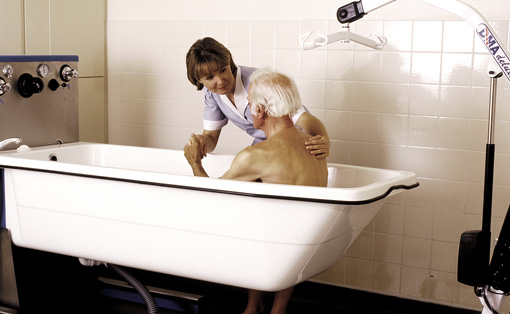1 Privacy and dignity
In order to deliver good healthcare and support, you must practise two important values: privacy, which means giving someone space where and when they need it, and dignity, which means focusing on the value of every individual. To achieve this you must respect their views, choices and decisions; enable them to be as independent as possible; not make assumptions about how they want to be treated; always work with care and compassion; and communicate as directly as you can with them.
In the next audio clip you can clearly hear how much Gail (a healthcare assistant) loves her job, and how she always works with utmost compassion for her patients.
Transcript: A healthcare assistant who loves her job
You should always provide personalised care and support that puts an individual at the centre of their care. When you first meet a new patient you should tell them your name and what your role is, and ask them what they want you to call them. Becoming ill usually has an adverse effect on people, whatever their age or background. Patients are likely to be worried about the unknown, so remember that your patient may well be experiencing fear of what lies ahead, and applying these values will go some way to reassuring them and enable them to be as independent as possible (Skills for Care, 2015, p. 2).
Good personal hygiene is an important part of maintaining dignity. Providing intimate care can be a particular challenge for newer healthcare assistants. Bodily functions like washing, dressing and toileting are normally kept very private, and might seem difficult because of cultural or personal background, gender issues and social awkwardness. Most inpatients expect to maintain their normal standards of hygiene – and this should be recorded on their care plan. You should always enable the patients to do as much as possible for themselves, but they may need help to wash and you should be aware that they may be feeling embarrassed or humiliated by being needy in this way. Whether using the bathroom or washing a patient in bed, you will need to ensure the water temperature and depth of the bath water are appropriate, and whilst making sure the person’s dignity is protected, end up with them being clean and refreshed. Careful attention to cleanliness of the mouth and feet is also important, by giving attention to these details it shows a patient that you are really doing your best to make them as comfortable as you can.
Activity 1
Learning outcomes

